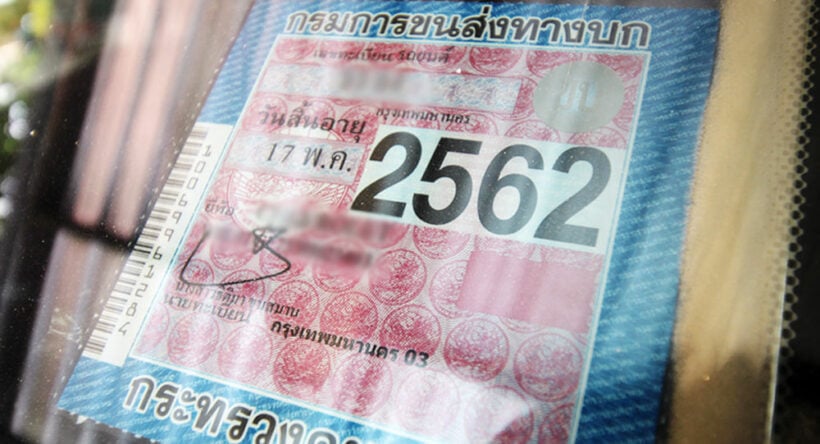From October you’ll have to pay your traffic fines before you can re-register your vehicle

PHOTOS: The Nation
It’s official, sort of.
From October 1, police have advised that car owners must pay all traffic fines or will be unable to re-register their vehicles and get a new annual registration sticker for their windscreen.
Without these window stickers, they will have problems with traffic police while on the roads.
Car licence registrations must be renewed on an annual basis. Stickers issued for the renewal must also be on prominent display in the vehicle.
The Nation reports that vehicle owners normally renew their vehicle licence registration without fail. But many have ignored traffic tickets issued by police. This led police to work with the Land Transport Department to link details about outstanding traffic fines to the system tracking car licence renewals.
“Our system is now linked with the traffic-fine database,” LTD deputy director-general Chantira Purutpat said yesterday.
Contrary to previous reports that those with unpaid traffic tickets would not be able to renew their annual vehicle licence registration, Chantira explained that the renewal would still be allowed. But motorists with outstanding fines would not get the round stickers proving their renewal.
“If vehicle owners come for a renewal but refuse to pay the fines for pending traffic tickets, they will get only a temporary receipt for the renewal,” Chantira said.
According to her, this receipt will be valid for just 30 days.
After that, traffic police may arrest and fine people whose vehicles do not display the round stickers proving renewal of car-licences. The maximum fine for this offence is currently 2,000 baht.
Statistics show that 11 million traffic tickets were issued in 2018. Of them, 9.7 million were simply ignored, with no one coming forward to pay the fines.
SOURCE: The Nation
Latest Thailand News
Follow The Thaiger on Google News:


























